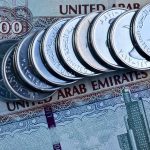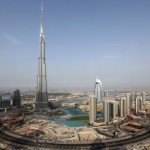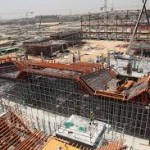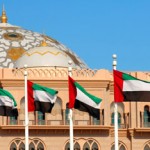The UAE: On the road to economic development

In the past two years, the UAE has achieved three major milestones on the journey towards a sustainable and diverse economy.
In 2014, the UAE’s stock exchanges were upgraded from ‘Frontier’ to ‘Emerging’ market status by the global markets index provider Morgan Stanley Capital International (MSCI).The elevation is seen by investors as a testament to sound financial practices due to the fact that MSCI makes its decision by assessing certain indicators such as regulatory framework, corporate governance within listed companies, trading landscape/behaviour as well as size of the exchanges and individual public companies. As a result, investors today are witnessing increasing stability in the markets backed by a swelling number of institutional investors.
The second milestone was the introduction of the long awaited insolvency law earlier in 2015. The law offers corporations the opportunity to file legal proceedings during times of financial distress without many of the complications that have been endured in the past. Companies doing business in the UAE can now expect a more transparent set of legal proceedings to reschedule lending facilities or liquidate entire companies. The law adds a layer of comfort in the perspective of international investors interested in the UAE market as it provides a better scope for the long-term viability of investments and contingency planning.
More recently, the UAE has announced a historic amendment to its economic structure. The 6th largest producer of crude oil in the world, with an estimated 3.4 million barrels a day in 2014, will lift government subsidies from petroleum products in the local market as of August 2015.
Since the country’s inception, the UAE petrol market has been subsidised by the federal and local governments, with limited clarity on where exactly did the burden primarily rest. A committee chaired by the Undersecretary of the UAE Ministry of Energy and comprise of the Undersecretary of the Ministry of Finance as well as the CEOs of Abu Dhabi National Oil Company (ADNOC) and Emirates National Oil Company (ENOC), Dubai’s answer to ADNOC, will convene on a monthly basis and issue a ‘pricing report’ based on current oil prices in the international markets.
The oil price indicated in the report will be the set cost until the committee’s next meeting after 30 days. The price will also include a monitored profit margin for the distributors. A place for a representative from the Federal National Council (FNC), the federation’s people representative, is notably missing from the committee. Although the FNC’s advisory status would limit its powers within the community; the elected representatives would be able to share, and record, the citizen’s perspective.
In addition to petrol, diesel prices will also be affected by the lifting of subsidies, but in the opposite direction. According to the Undersecretary of the Ministry of Energy, Matar AlNeyadi, the Ministry anticipates that petrol prices will increase and diesel prices will decrease. This particular issue may raise a few eyebrows considering the rationale behind the deregulation of oil prices being publicised by the UAE Government.
As per the Government’s announcement on the state news agency WAM, the decision to lift subsidies aims to support the national economy, conserve natural resources and work on sustaining the environment. The public transport sector, which is predominantly petrol dependent, contributed to 22% of the total greenhouse emissions in 2013. On the other hand, the other 78% of greenhouse emissions, courtesy of the export (crude oil operations), manufacturing, construction and air transport sectors, will continue to boom backed by the decreasing diesel prices.
The government’s rationale may be viewed as contradicting considering the fact that sectors utilising diesel are expected to grow, which would push greenhouse emissions higher, whilst the smaller public transport sector will witness increasing awareness by consumers that would probably decrease the 22% – which is bound to decrease in any case due to the growth in the diesel dependent sectors.
The lifting of subsidies impacts the longstanding gentlemen’s agreement which the ruling elite have with the people. Each Gulf state has their own distinct characteristics, however, the shared governing principle is for the government to provide an economically superior welfare state while the citizens give up certain political rights such as a fully elected parliament with legislative powers, the right to vote for every citizen and an elected government.
The aforementioned WAM announcement received mixed responses from UAE citizens, a rare event for a highly harmonious society. Some citizens applauded the decision whilst highlighting the fact that more than 90% of the UAE population (recent official figures are not available) are expatriates benefiting from a tax free income and subsidised living expenses. Others were less excited about the event, knowing that increases in oil prices will have a trickle effect which would impact the entire economy and cost of living will substantially surge, similar to 2010.
The UAE Government intended to lift subsidies a few years ago and did in fact slightly widen the threshold by a slight increase in petrol prices in 2010. The move was widely seen as preparation for full deregulation of the market. The arrival of the Arab Spring delayed plans and the UAE government made a political decision to put the deregulation program on hold.
Certainly, every decision would have its pros and cons. The MSCI upgrade attached UAE listed companies to Emerging Market indices which resulted in parallel price movements to other markets, regardless of the performance of particular companies. Moreover, the insolvency law is limited to corporations and does not include individuals. The SME business community in the UAE which in the case of Dubai, comprises of more than 95% of Dubai’s businesses, is more worried about personal financial issues, cheques in particular. An individual could easily find himself in a jail cell should he or she bounce a cheque.
It should be noted that the positives of such decisions remarkably overtake the negatives. The UAE Government will find itself on a crossroads very soon. Due to the deregulation of the oil prices, vast amounts of liquidity will be in the government’s disposal. These funds could be used to provide more housing, invest in higher education, enhance healthcare plans, develop new welfare programs and establish partnerships with the private sector which would open up more job opportunities for Emiratis. The government could strategically manage this matter into a rewarding opportunity for its citizens and its own track record.
In terms of competitiveness of the UAE in comparison to other markets such as Qatar, Hong Kong and Singapore, the UAE has just become an even more expensive place to live. The other 8 million-plus expatriates in the UAE will be the segment mostly affected by the deregulation.
In recent years, expatriates residing in Dubai, Sharjah and Abu Dhabi have been highlighting the fact that cost of living is on the rise, especially in the area of schooling, rents and utilities. The lifting of subsidies will certainly not help in that area as inflation is expected to rise due to the overreaching power of the oil sector to other sectors.
The UAE will find it more difficult to attract white collar executives with increasing cost of living is a major challenge to anyone considering a life in the UAE and this is where the greatest challenge lies. The economic structure of the UAE is not maintainable without the large expatriate workforce and being less attractive for professionals to work and live in the Emirates would have to be addressed by the government before the deregulation effects become evident.
Perhaps the UAE could consider granting permanent residency permits and a government administered pension scheme for these permanent residents. This would certainly raise the UAE’s competitiveness by adding a further sense of security to prospective professionals seeking a career in emerging markets.
The next few years will be very interesting for the two largest Arab economy and the future will be defined by the way the UAE Government will manage the upcoming challenges.
Source: Arabian Business – The UAE: On the road to economic development






























You actually make it appear really easy together with your presentation however I in finding this topic to be really something that I believe I
might never understand. It kind of feels too
complicated and very wide for me. I’m having a look ahead on your next post,
I’ll try to get the cling of it!
Hi, every time i used to check webpage posts
hhere early in the daylight, because i like to
find oout more aand more.
It is in reality a great andd useful piece of information.
I am satisfied that you just shared this helpful informtion with us.
Please keep us up to date like this. Thanks ffor sharing.